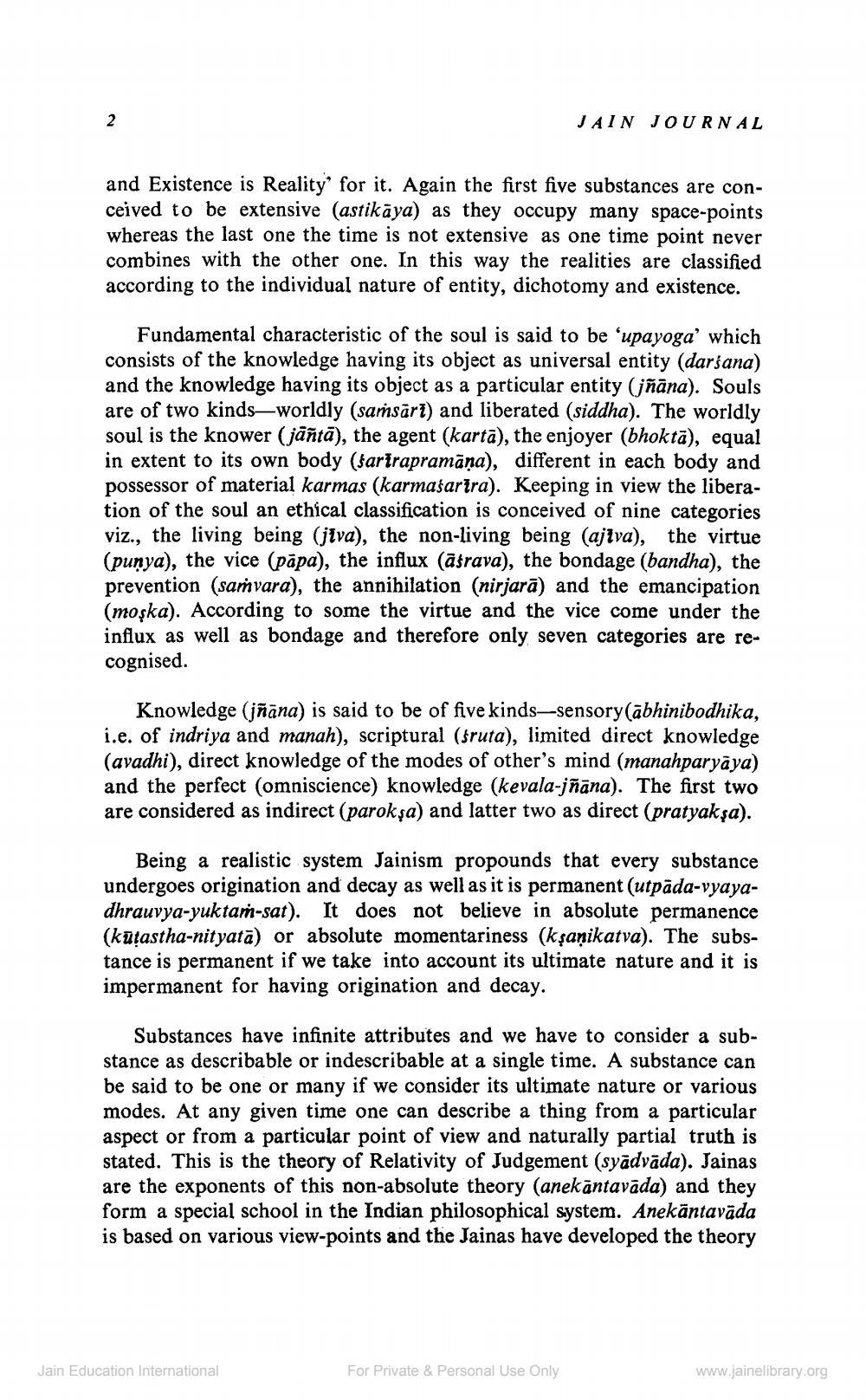Book Title: Jain Journal 1982 07 Author(s): Jain Bhawan Publication Publisher: Jain Bhawan Publication View full book textPage 7
________________ 2 and Existence is Reality' for it. Again the first five substances are conceived to be extensive (astikaya) as they occupy many space-points whereas the last one the time is not extensive as one time point never combines with the other one. In this way the realities are classified according to the individual nature of entity, dichotomy and existence. JAIN JOURNAL Fundamental characteristic of the soul is said to be 'upayoga' which consists of the knowledge having its object as universal entity (darśana) and the knowledge having its object as a particular entity (jñāna). Souls are of two kinds-worldly (saṁsārī) and liberated (siddha). The worldly soul is the knower (jāñtā), the agent (kartā), the enjoyer (bhoktā), equal in extent to its own body (sarirapramāṇa), different in each body and possessor of material karmas (karmaŝartra). Keeping in view the liberation of the soul an ethical classification is conceived of nine categories viz., the living being (jiva), the non-living being (ajtva), the virtue (punya), the vice (papa), the influx (āśrava), the bondage (bandha), the prevention (samvara), the annihilation (nirjarā) and the emancipation (moşka). According to some the virtue and the vice come under the influx as well as bondage and therefore only seven categories are recognised. Knowledge (jñāna) is said to be of five kinds-sensory (abhinibodhika, i.e. of indriya and manah), scriptural (sruta), limited direct knowledge (avadhi), direct knowledge of the modes of other's mind (manahparyāya) and the perfect (omniscience) knowledge (kevala-jñāna). The first two are considered as indirect (parokşa) and latter two as direct (pratyakşa). Being a realistic system Jainism propounds that every substance undergoes origination and decay as well as it is permanent (utpada-vyayadhrauvya-yuktam-sat). It does not believe in absolute permanence (kuṭastha-nityatā) or absolute momentariness (kşanikatva). The substance is permanent if we take into account its ultimate nature and it is impermanent for having origination and decay. Substances have infinite attributes and we have to consider a substance as describable or indescribable at a single time. A substance can be said to be one or many if we consider its ultimate nature or various modes. At any given time one can describe a thing from a particular aspect or from a particular point of view and naturally partial truth is stated. This is the theory of Relativity of Judgement (syādvāda). Jainas are the exponents of this non-absolute theory (anekāntavāda) and they form a special school in the Indian philosophical system. Anekāntavāda is based on various view-points and the Jainas have developed the theory Jain Education International For Private & Personal Use Only www.jainelibrary.orgPage Navigation
1 ... 5 6 7 8 9 10 11 12 13 14 15 16 17 18 19 20 21 22 23 24 25 26 27 28 29 30 31 32 33 34 35 36 37 38 39 40 41 42 43
